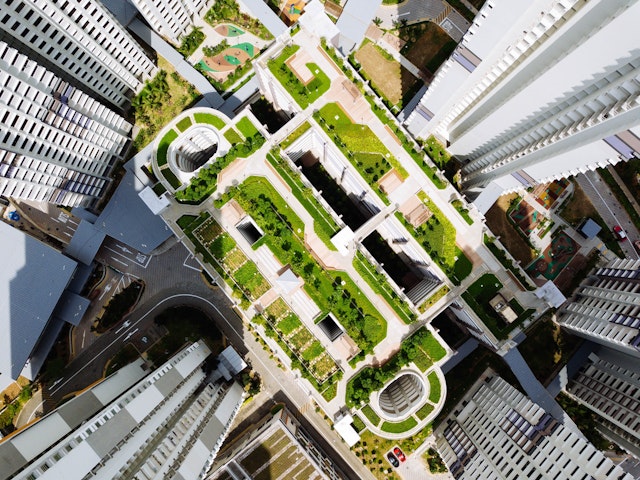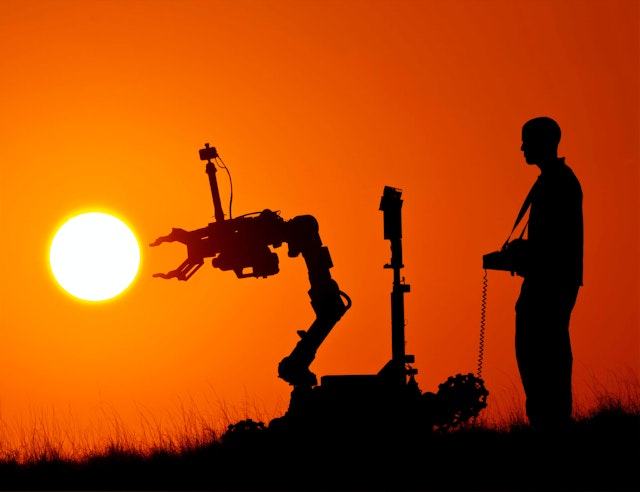Fact or fantasy? Futurists predict a better world for 2030
The year is 2030. It's been 10 years since the coronavirus pandemic closed down the planet. The world has moved on. It has innovated, adapted and progressed. Things are familiar, yet different. Is it a better world or is there just more shiny gadgets distracting us from cracks in the foundations?
The Drum has enlisted marketers and futurists to analyse how they think the 20s will go? What will the decade look like? Will the pandemic be a lynchpin moment of radical change and activism or will it be the scare that ushers in a cyber-dystopia?
Our panellists have been 'Back to the Future' and had 10 minutes to detail what they observed in 2030.
Their accounts have been edited for clarity.
Emma Chiu, global director, Wunderman Thompson Intelligence
Youth
In 2020, the youth wanted to save the world. They took a stand. But after 10 years, did they save the world? Not quite. They made progress that the next youth can build upon. A huge, ethnically diverse youth.
In 2030, every company will have a ranking system, based on their purpose, values. When generation alpha starts applying for jobs, they will look for this.
The pandemic has really been a big blow for this generation. People are graduating into a world in recession. This has impacted their thoughts and their careers – more will go for jobs that are ‘pandemic proof’. Think more scientists, more doctors, more people in governments.
Health
In the 2020s, health became a priority. After all, governments prioritized health over their economies during the pandemic. It will be at the forefront of every company‘s mission statement.
And when it comes to health of the people, we must also consider the planet. The combat of climate change is vital to creating a better and healthier world, Many companies may employ a CHO – a chief health officer.
Little details will be optimised. A trip to the spa in 2030 will be more like a trip to the doctors. You will go for relaxation but will have checkups where you will learn more about your health, your body, your biology, and how to better it.
Mega cities

In 2020, according to the United Nations, we already have 34 mega cities (cities with more than 10 million population). With demographic trends leaning towards longer-lived citizens, there‘ll be more people to squeeze in. In 2030, we‘re projected to have nine more mega cities around the world. In order to live healthily, we can’t live in box rooms with no real sunlight. That‘s not the future of living in an urban place.
There‘ll be more focus on the outdoors, an aspect of the urban environment that we took for granted until the pandemic in 2020.
In order to have healthy mega cities we need to really radically rethink urban design. Expect to see more car-free spaces while configured streets will see more bicycle lanes and walking paths.
Finally, there will be no more rush hour, because we’re going to have a work life balance that‘s no longer not exclusive to nine to five. It will be far more flexible and we‘re going to be working in a far more global way. You may not need to commute into the world as often.
Lucie Greene, founder, Light Years
Big tech
Big tech is increasingly eclipsing the role of government and becoming more influential. It moves into more civic life in health, education, infrastructure.
Before the pandemic, that there was a groundswell of the tech lash. People were becoming truly aware of how many tentacles these companies had stretching into our daily lives. The pandemic changed that course and accelerated big tech’s efforts. It’ll soon take a leading role in education, government services and healthcare. We will live in a silicon state.
In Australia, the contact tracing app is already carrying McDonald‘s advertising, showing the consumerisation of our civic life.
There is a perception that our governments are not actually that capable of solving big tech problems. And there’s generally a lack of faith in representative democratic institutions, in favour of the people power of public shame.
But tech is not the solution to everything. If we want to reimagine education, let‘s start by paying for more social workers, mental health counsellors, more school nurses and more arts courses.
Even with the social enterprise approach an organisation needs to turn a profit. That doesn’t really work for state services. I fear more unaccountable encroachments on more aspects of the way we live in addition to completely dominating our consumer lives.
Creativity
There’s a paradigm shift coming. Technology was seen as the enemy of creativity and everything that we thought of as emotive and artistic. The new generation of creators are playing with artificial intelligence and augmented reality. They grew up with gaming, social media and smartphones – these are the new tools.
We‘re seeing a lot of experimentation with how to add sensory layers to online experiences. What started off as a very Gen Zed trend in gaming, buying skins or digital clothing and digital makeup, is now going to be the norm. With virtual backgrounds, interiors and realities, virtual calls will become more immersive.
AI
This new wave of creatives see artificial intelligence as a collaborative partner to create new things. And you‘re already seeing all sorts of artificial intelligence-powered avatars and assistants start to emerge. We‘re going to see less fear of artificial intelligence.
Virtual worlds
What is a movie or a theme park or a shopping mall? They could completely converge with games soon. You‘ll be able to enter movies and interact with characters.
So we‘re going to see more and more convergence between entertainment, gaming, talking and socializing.
Daniel Hulm, chief executive officer, Satalia
Decentralised world
By 2030, I wanted to have helped create a decentralized world, where everyone has all their health care, education, nutrition and shelter needs met. I want them to be able to contribute positively to humanity.
Over the past 10 years, we‘ve seen a rising resistance against this capitalist profit model. We‘ve also seen a rising resistance against nationalism and centralization. We are starting to resist large organizations accumulating large amounts of wealth and power.
And looking more towards decentralized models and an open-source community and companies is actually a very good example of that where people come together.
How could you bring designers, developers, accountants, HR experts and business leaders together globally to be able to contribute to the things that they want to contribute to and to be remunerated fairly for that contribution?
The people‘s Facebook?
If you charged 10 pence per user, per year that could net you £300 million to service a global community of people that would be building an open-source version of Facebook.
It will be driven to connect people as opposed to making money for shareholders.
Decentralized companies are going to start appearing and they‘re going to start challenging the likes of Amazon and Google and others. I‘m currently asking myself, how does a company compete with another company that doesn't need to make money?
Rise of robots

How can we tap into the creative capacity of humanity to solve some of the challenges we have around our environment? How do we also provide jobs or opportunities for people, while technology makes other roles obsolete?
We have the impulse to try to create profits and remove people from jobs - remember that the biggest cost to a business is labour. Our economies are not set up to handle this. So we need a platform that allows people to contribute and be remunerated for that contribution.
We continue to invest in AI solutions. At some point, we are going to build a brain that is smarter than us in every single possible way. Because we want to make things more efficient, we want to make things more cost-effective. That will be our last invention. If we are not cooperating as a species by the time this thing this comes, it is likely to remove us from the equation.
Politics
Some people say Facebook knows you better than you know yourself based on your historical habits and likes.
I saw a really great TED talk recently where it was predicted you could build a digital avatar of yourself. It will ask you questions about how you feel about certain political issues, and pull in all your data. Instead of us having to elect politicians to decide what policies are created, our digital avatars could vote on them.
It would mean we could get rid of politicians...
Amy Kean, brand and innovation director, AndUs
The wrap-up
Throughout history, predictions of the future reflect the ideals or the desires of that time. So in the 1500s, Nostradamus’ predictions were all about war, power and men. In the 1800s during the Industrial Revolution, projections involved huge flying steampunk machines. In the 1960s, a cartoon like the Jetsons imagined the American Dream in space.
Over the last 10 years, our predictions of the future have been so clinical, so minimalistic and so tech-obsessed, it‘s almost like we want to be robots. We are so sick of being ourselves. We need to reclaim the human.
In 2030, we‘ve enhanced ourselves in many different ways. We‘ve empowered ourselves and others professionally and economically. We‘ve saved ourselves from the perils of inadequate government.
There is going to be an improved relationship between technology and people.
Technology will have merged with people. And it will truly make our lives more fulfilling.
But we‘ve also issued ourselves a warning today. We can‘t become complacent. That's really important. We still need resistance. The activism must not stop. Generation Z is the answer to a truly equal collaborative society.
The Design winners spoke with The Drum Design Awards‘ chair John Mathers as part of The Drum‘s Can-Do Festival, an online event celebrating the positive energy, innovation and creative thinking that can make the marketing community such a powerful force for good. You can watch the interview in full here.
Sign up to watch forthcoming sessions and see the full Can-Do schedule here.

